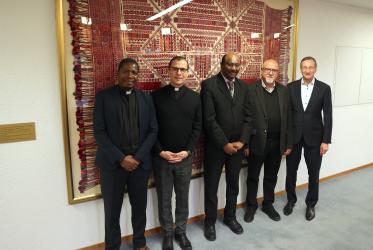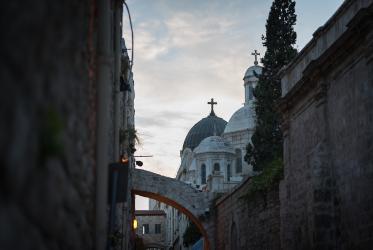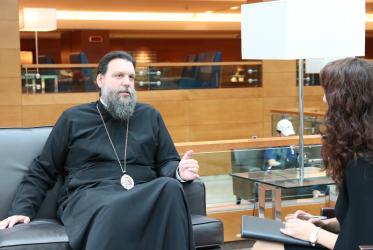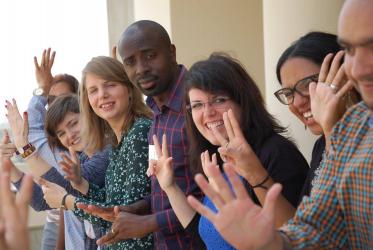Displaying 1 - 20 of 26
WCC expresses hope for work of the Syrian Constitutional Committee
01 November 2019
WCC pressing ahead with disarmament work
28 August 2019
Trying to do good for the world
18 December 2017
Churches call for urgent action for Cremisan Valley
28 September 2017
Holy work for the Holy Land
29 March 2017
‘No Christmas bells in Mosul’ for a third year, says Assyrian priest
14 December 2016
Fleeing from – rather than to – a place
10 February 2016










